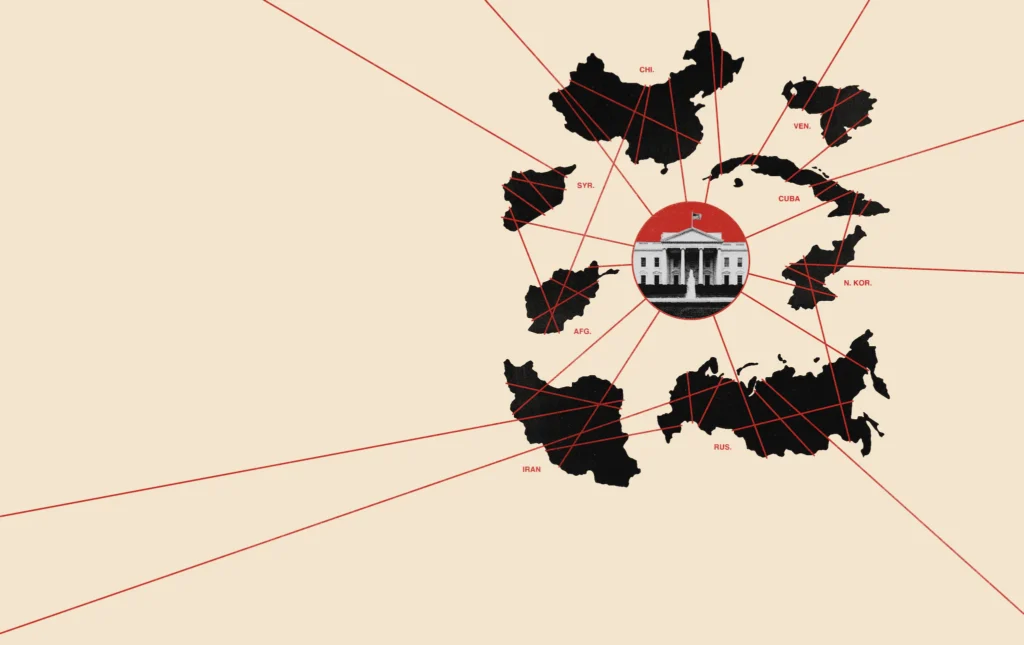The Money War: How Four U.S. Presidents Unleashed Economic Warfare Across the Globe
ANGLO AMERICA, 29 Jul 2024
Jeff Stein and Federica Cocco | The Washington Post – TRANSCEND Media Service
In Cuba, sanctions imposed by the United States more than 60 years ago have failed to dislodge the communist regime — but they’ve made it more difficult to get critical medical supplies to the island.
In Iran, U.S. sanctions that date to the 1970s have not forced out Tehran’s theocratic rulers — but they have pushed the country to forge close alliances with Russia and China.
In Syria, Bashar al-Assad remains in power despite 20 years of U.S. sanctions — but the country is struggling to rebuild from civil war, and more Syrians than ever are expected to need critical humanitarian assistance this year.
In country after country, sanctions have emerged as the key instrument of U.S. foreign policy.
25 Jul 2024 – Today, the United States imposes three times as many sanctions as any other country or international body, targeting a third of all nations with some kind of financial penalty on people, properties or organizations. They have become an almost reflexive weapon in perpetual economic warfare, and their overuse is recognized at the highest levels of government. But American presidents find the tool increasingly irresistible.
By cutting their targets off from the Western financial system, sanctions can crush national industries, erase personal fortunes and upset the balance of political power in troublesome regimes — all without putting a single American soldier in harm’s way.
But even as sanctions have proliferated, concern about their impact has grown.
In Washington, the swell of sanctions has spawned a multibillion-dollar industry. Foreign governments and multinational corporations spend exorbitant sums to influence the system, while white-shoe law firms and K Street lobbying shops have built booming sanctions practices — in part by luring government officials to cash in on their expertise.
Elsewhere, sanctions have pushed autocratic regimes into black market trade, empowering criminal networks and gangs of smugglers. U.S. adversaries are ramping up their efforts to work together to circumvent the financial penalties. And like military action, economic warfare can leave collateral damage: Sanctions on Venezuela, for instance, contributed to an economic contraction roughly three times as large as that caused by the Great Depression in the United States.
CONTINUE READING IN THE ORIGINAL – washingtonpost.com
Tags: Asymmetric warfare, Economics, Hegemony, Imperialism, Sanctions, US empire, USA, War Economy, Warfare, World Order
This article originally appeared on Transcend Media Service (TMS) on 29 Jul 2024.
Anticopyright: Editorials and articles originated on TMS may be freely reprinted, disseminated, translated and used as background material, provided an acknowledgement and link to the source, TMS: The Money War: How Four U.S. Presidents Unleashed Economic Warfare Across the Globe, is included. Thank you.
If you enjoyed this article, please donate to TMS to join the growing list of TMS Supporters.

This work is licensed under a CC BY-NC 4.0 License.
